Denver's next mayor Mike Johnston made promises on the campaign trail. Starting when he takes office on July 17, we'll see whether he keeps them.
Throughout the race, Johnston offered an optimistic vision of Denver, while acknowledging the same ills nearly every other candidate identified. Unlike many candidates, he offered position papers with clear goals, plans and timelines.
"We know it works and we know how to pay for it," has been his mantra throughout the campaign.
Sure, he said, mistakes might be made along the way -- as they always are. But he says he will quickly identify what's not working and correct the course.
Here are some of Johnston's promises Denverites will track over the next four years.
Johnston has said he'd serve no more than eight years and not seek another office in his first term.
The position of Denver mayor has been a stepping stone for John Hickenlooper, who left the office to run for governor, ran to be president, and is currently one of our two senators at Congress.
Perennially politically ambitious, the former state senator has served as one of former president Barack Obama's education advisors and run for both governor and U.S. Senator.
For now, he says he'll devote at least his first term entirely to leading the city.
Johnston promised to end homelessness by the end of his first term.
Hickenlooper said he could do the same thing -- albeit, giving himself ten years. And he failed.
Johnston acknowledges no other city in the country has figured homelessness out -- but he says he will.
Part of his plan is to build 1,400 tiny homes and open motel rooms across the city over the next four years to temporarily house people living on the streets. Will he find enough sites in a city where many neighborhoods have resisted such efforts?
Even if he does find the sites, will the proposed number of tiny homes be enough to meet the demand in a metro where more than 30,000 people received homelessness services last year?
His answer: The tiny homes are temporary and people will be on a pathway to more permanent homes, which he plans to help build.

Johnston says he'll pay for homelessness and housing services through federal and state money.
Many of the pandemic-era funding streams the city and state have depended on to pay for homelessness services and eviction prevention have already dried up. Other aid programs have closed. So where's the money coming from?
Johnston says he will use state money from Proposition 123 that dedicates $300 million annually from the state budget to developing affordable housing and related programs. He was the architect of that voter-approved policy meant to address homelessness and housing insecurity.
But there is a catch.
To use Proposition 123, Johnston needs to speed up permitting for new construction. His goal: 90 days.
For years, developers, contractors and residents have griped about the bureaucracy in Community Planning and Development, the department that oversees permitting. Those gripes have gotten louder during the pandemic, as permitting times increased. Johnston says he has a plan to expedite permitting times by cutting red tape and adding urgency and staff to expedite the process. Through that, he plans to match what's required by Proposition 123. That will take some serious oversight and reform.
The need for staffing and urgency weren't lost on the current administration. But hiring and retaining skilled staff proved tough. While permitting speed has accelerated over the past year, it still has a ways to go to catch up with the demands of Proposition 123.
He must show two metrics to demonstrate that he's met this goal: more staff and meeting the up to 90-day-max permitting times.

To address the affordable housing crisis, Johnston plans to create roughly 25,000 permanently income-restricted units in eight years. Some will be new construction. Others will be taken off the market.
Building new housing stock is slow. And it's not just permitting that holds things up. Projects can take years to finance and even longer to build.
While 25,000 new units would certainly add to the current stock, the Denver Housing Authority head David Nisivoccia recently told Denverite that the city needs more like 60,000 new income-restricted units -- and that number is only increasing. By that account, Johnston's eight-year goal isn't half of what's needed today, raising serious questions about whether he can keep the workforce and low-income people housed and in town.
The rate of displacement could measure his success.
Johnston also wants to lower the cost of market-rate housing.
He plans to do so by lowering construction costs, reducing parking mandates near mass transit and adding density in areas where it is currently prohibited. He'll need City Council on board to do that, inflation in construction costs to cool off, supply chains to work in his favor and developers to build cheaper units geared toward the missing middle rather than the luxury market.
The cost of housing will be easy to measure by the end of his first four years. Are homes cheaper than they were when he took office? If so, he reached his goal.
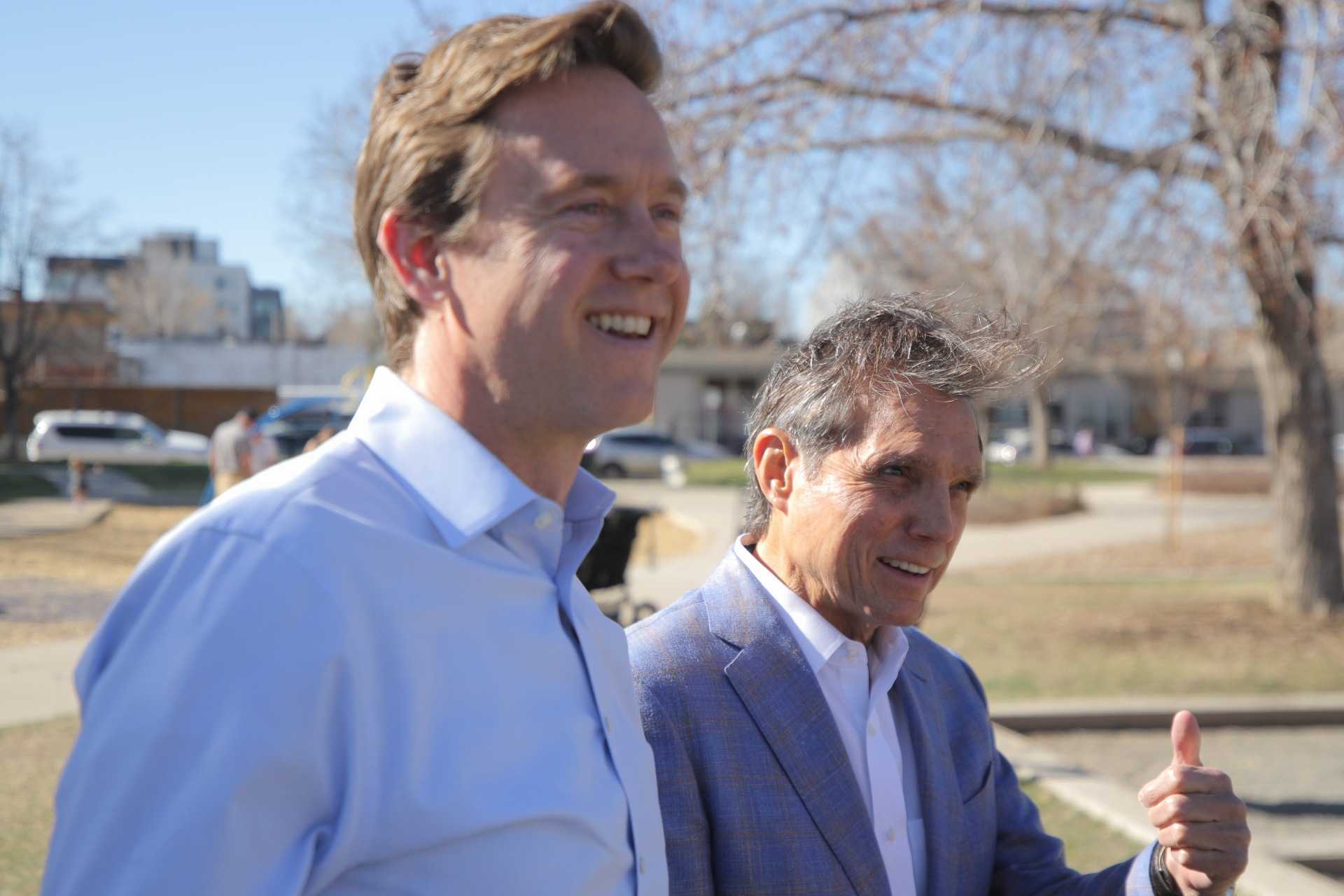
Johnston plans to spend $20 million to hire an additional 200 first responders to address violent and property crime.
Nationwide, law enforcement departments are struggling to hire. There's also a shortage of mental-health providers. Caseworkers have been fleeing the field, citing low pay and stressful work conditions. And with housing currently out of reach for most Denverites, luring an underpaid workforce to the area will be tough.
Meanwhile, law enforcement departments nationwide struggle to hire. He plans to compete with other departments nationally and regionally by hiring faster and encouraging more beat policing, where officers walk through communities and get to know people.
The dangers of the job and low public trust in police after high-profile police killings and misconduct cases that have cost the city millions will make his goal tough to reach.
He also plans to ensure 50% of cadet classes are women -- an easily trackable metric.
How's he going to pay for all the new first responders? It will take $3 million from the current budget, $10 million in banked overtime and $7 million from state grants. The stability of these sources over the next four years could be uncertain.
Johnston said he'd negotiate a deal with Westside Investment Partners, owners of the Park Hill Golf Course, to purchase the land and turn it into a vibrant public space without using eminent domain.
Westside has been resistant to the idea of selling the land after losing a ballot measure that would have allowed a massive mixed-use development on the property. The company plans to turn it into a privately run, publicly accessible golf course. Will Johnston find another way forward as open space advocates want? How much would it cost the city?
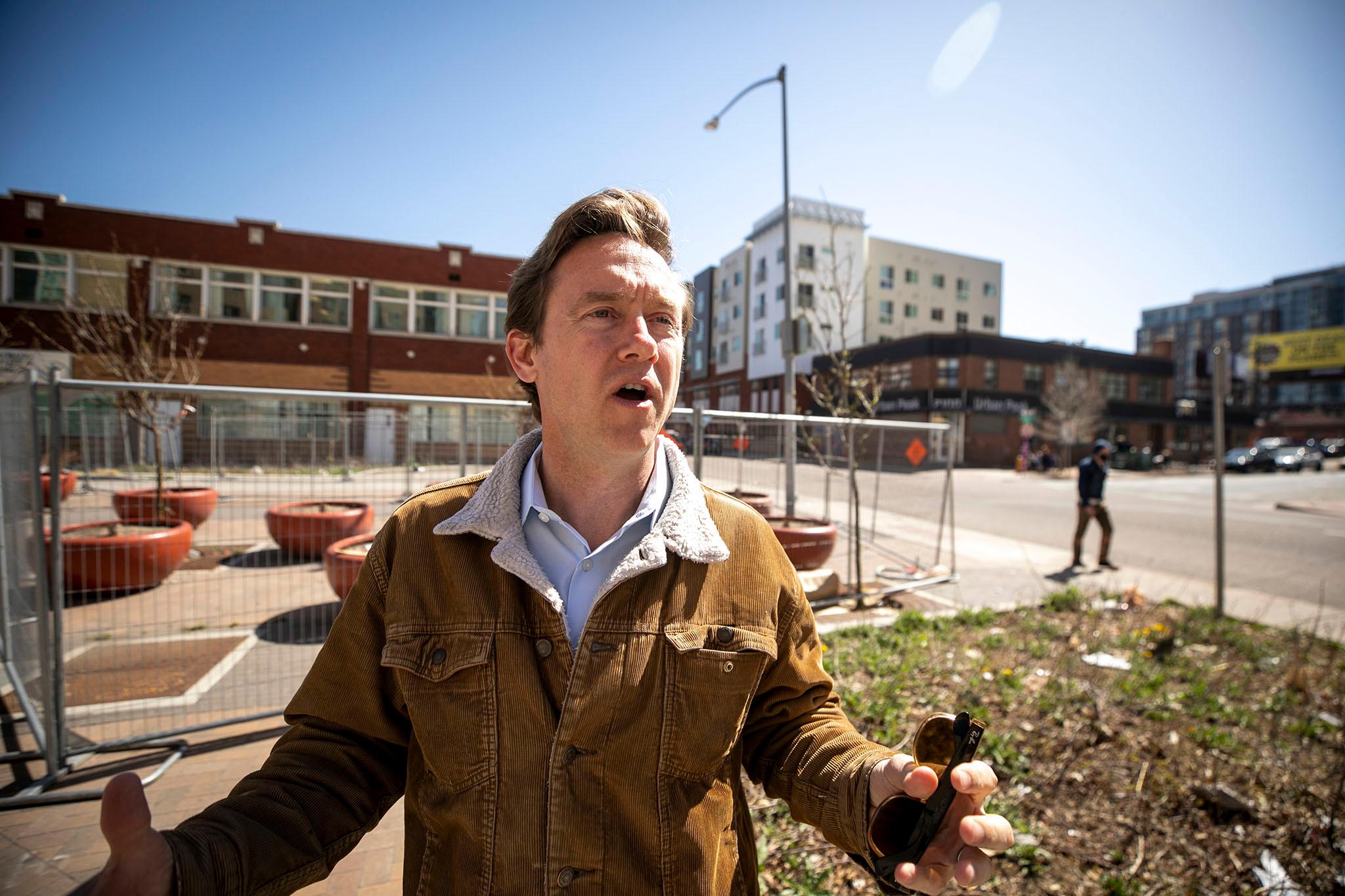
Johnston said his out-of-state billionaire backers don't expect a return on investment.
When repeatedly asked what the billionaire backers supporting his campaign expected to get in return, he said they didn't ask for anything and their support did not guarantee them special access to his administration.
Take Reid Hoffman, the largest contributor to Advancing Denver, the independent expenditure committee supporting Johnston. Hoffman has strong interests in both school reform and artificial intelligence technologies. Will related policies and industries get special attention when the administration tries to lure new businesses to town? Will AI technologies, with ties to companies Hoffman invests in, be incorporated somehow into municipal government? Hoffman is just one of several large donors Denverites will be watching.
In Johnston's time, the voters will not front funding for a new Broncos stadium.
While Johnston said he wouldn't push for the public to pay for a new stadium in his time in office, it's possible that residents or City Council could put this on the ballot, and the voters could override his will. If he reverses his stance on this, he would be breaking that commitment.

Johnston promised to make RTD better for commuters, children and seniors.
As mayor, he won't have much power over RTD. But he can have some sway if he partners with the district and other regional leaders.
He says he'll work to make RTD free for riders under 20 and over 65. Easy to track.
He'll work to boost ridership. After his first term, Denverites will ask whether numbers have risen.
He'll push businesses and RTD to increase EcoPass revenues. But with a drastic drop in workers commuting to the office -- and that trend expected to continue -- it's unclear how this will work.
But again, the metric will be obvious: Is RTD making money off of the program to reinvest in services or not?
Johnston will push for the electrification of Denver to reduce greenhouse gas emissions and improve air quality.
Johnston says new construction, under his leadership, will not include gas hookups. His administration will increase incentivizes for energy efficiency upgrades. He will also reduce permitting times for eco-friendly projects.
"As Mayor, every new light-weight vehicle purchased by the city will be electric by 2025 unless granted an exception personally approved by me," he wrote.
He'll also give priority curb access to rental car and rideshare companies that increase their use of electric vehicles.
Will emissions and air quality be up or down at the end of his first few years?
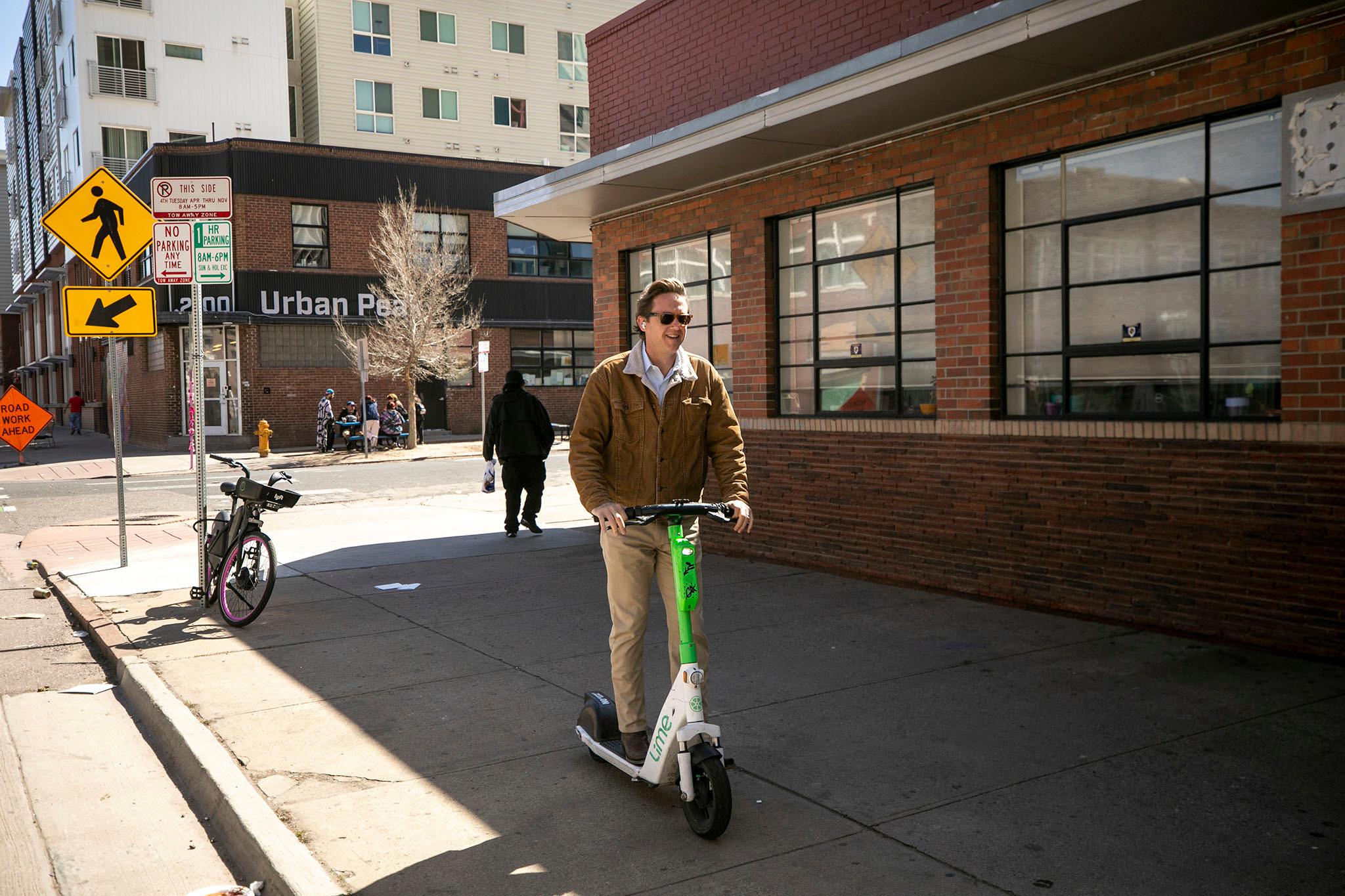
He has other big transportation promises, too.
His administration pledges to work on the voter-approved complete city sidewalk network and try to speed up the timeline. We'll be asking how those sidewalk builds are going.
Just 10% of Denverites commute without a car, he said. He plans to increase that number over the next four years by beefing up multimodal transportation with better infrastructure and by implementing the city's 2019 Denver Moves plan.
The very popular e-bike rebate program will continue under his administration.
Johnston plans to implement pilot programs, including the crowdsourced Vamos Shared Streets Network of low-stress bike lanes, which advocates say can be completed in a few months.
Johnston plans to create a massive training program for new workers called Upskill Denver.
This project, created in partnership with the private sector and philanthropies, will give low-cost training to Denverites looking to increase their skills to get well-paying jobs.
He says the plan can be implemented for about 1,000 Denverites, at the cost of $10,000 a pop, in a few months.
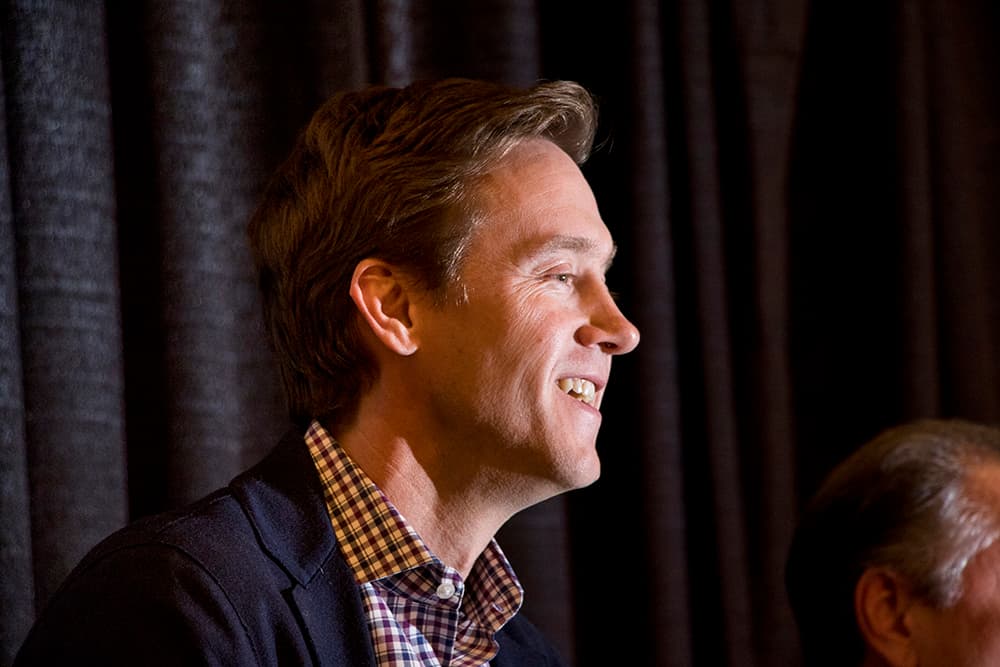
Johnston says he'll also train new childcare workers and ensure they're paid a decent wage.
The childcare industry has struggled to retain employees because the wages are so low. Johnston has a fix: using federal and state money to increase pay. By the end of his first term, will there be more educators in the workforce and will their pay have significantly increased?
He also plans to increase the number of early childhood education centers through adaptive reuse in Downtown buildings and by working with United Way to fund such projects citywide. At the end of his term, how many such projects will be completed?
Johnston, who is a formidable fundraiser when it comes to campaigns, will have to encourage private donors to step up to make this happen.
Of all the candidates in the race, Johnston was one of the few to articulate a full plan to support the arts. Part of that is creating a campus for an artist-in-residence program.
Johnston has said he will create a two-year residency program in a building dedicated to this goal, with housing included. Artists will also receive a stipend, materials and studio space. This project will be a collaboration with the arts nonprofit Redline Contemporary.
The city will make public spaces like walls and stages available for artists to share their works. He likened his plan to the city's current public art project, but he said will focus on the artists themselves. He plans to pull this off through philanthropic dollars and land donated by community leaders.
Artists will be waiting to see if the plan has teeth.
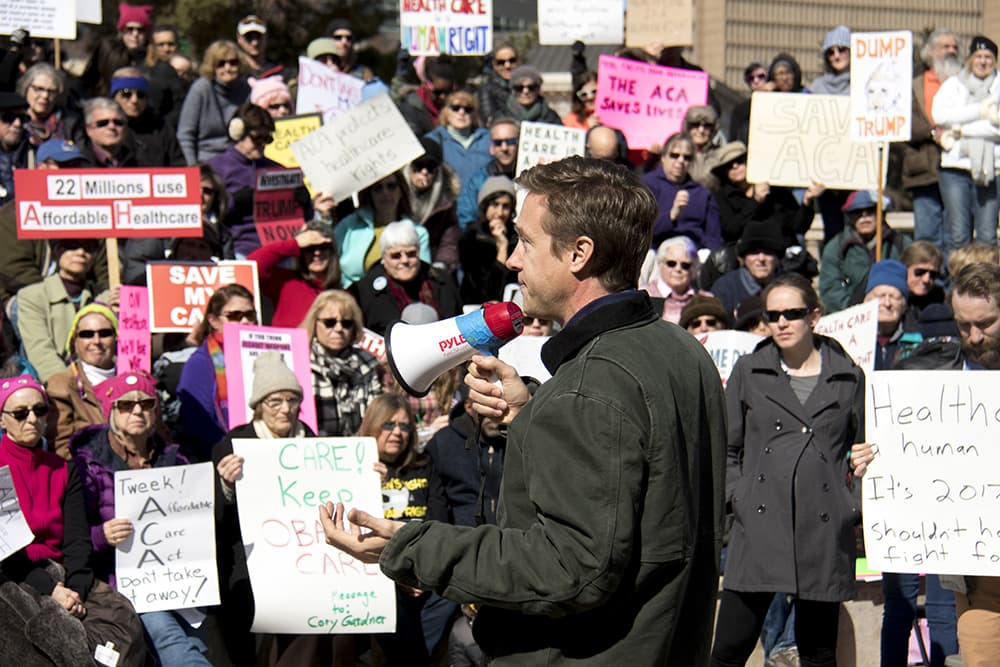
Johnston agreed to 74 of 79 commitments third-place finisher and head of Emerge Colorado Lisa Calderón sent to him compiled from leaders from Denver's Latino community.
Calderón used that questionnaire to decide which candidate she would back in the runoff election. The issues he committed to span economic justice, gentrification and displacement, the culture of leadership, education equity, public safety, health and well-being, and immigration. Those leaders, and Calderón, will certainly be watching whether he meets those 74 commitments.
Denver's snow-plowing system will see a revamp under Johnston's administration.
Multiple times throughout the campaign, Johnston said his administration would expedite snow plowing, breaking with years of Denver tradition to let the sun take care of the work. The current system is set up to save money. The sacrifice: The people of Denver are occasionally snow-bound more than peers in other cities, and we end up dealing with icy sidewalks and streets like we did this. Johnston has said that will change under his administration.

In hiring his cabinet and appointees, Johnston has committed to a robust and fair hiring process.
While his opponent suggested he exchanged political appointments for endorsements in the general election, he vehemently denied that had happened. Many will be looking at whether he appoints his candidacy's supporters and how robust the hiring process will be. Will he have a diverse cabinet representative of the breadth of the community, as he has promised?
Johnston will make Denver America's best city.
While Denver topped the lists of best cities during Hancock's administration for years, we've recently fallen near 100th place in a couple of listings. Johnston plans to turn that around. To do so, he needs to make Denver a culturally rich, affordable place to live and do business, with clean air, responsible policing and public safety so this can be an enjoyable place to live, work and play. Part of that is an attempt to "restore civility in our public spaces" with "basic standards of decency."
When people go outside at the end of his term, will they feel safe? And will they be able to have a good-paying job and afford a home in the city they love?












